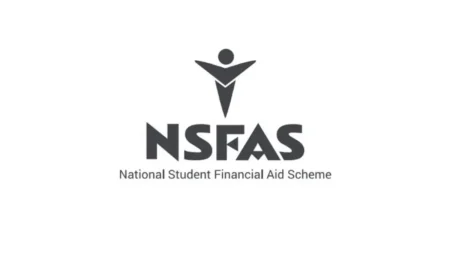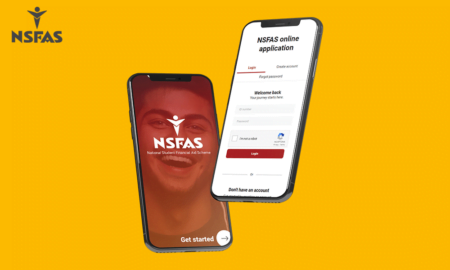So your application was successful and now you are waiting on your NSFAS allowance? Navigating the financial aspects of higher education can be a complex process for students, but understanding the NSFAS allowance payment dates is crucial for those who rely on this support for their academic journey. These payments are a lifeline for the thousands of students who depend on NSFAS, this article ensures that you stay up-to-date with the latest information to avoid delays to your NSFAS allowance.
How does NSFAS Bankroll the Students?
NSFAS allowance system operates on a straightforward model. Once your application is approved and your tertiary institution has confirmed your registration, the funding is allocated. The government is responsible for disbursing the funds, which are loaded onto the NSFAS Wallet either through your institution or via their fintech partners, namely eZaga, Narocco, Tenet Technologies, and Coinvest. These allowances cover your expenses for food, accommodation, transportation, study materials, and a personal care.
So When Do I Get My Moola, Anyway?
Generally, NSFAS releases the allowances as per the academic calendar decided by your tertiary institution. But typically, and this is only typically, you can expect to see the first payment at the start of the academic year with additional payments following every month. NSFAS also gives out a once-off payment at the beginning of the year for learning materials.
If you were expecting your NSFAS allowance and it has not hit your Wallet, do not panic, there are measures you can take. Get in touch with your student support office or call the NSFAS Contact Centre at 08000 67327. Make sure you have ticked off all the boxes: online agreement signed, wallet account activated, institution confirmed registration.
NSFAS Allowance Breakdown
Understanding the breakdown of NSFAS allowances is crucial for beneficiaries to plan their academic year effectively.
South African Universities
- Accommodation As per the actual costs charged by the university (costs for private accommodation must not exceed costs for university residence)
- Transport (up to 40 km from the institution) R7 500 per annum
- Living allowance R15, 000 per annum
- Book allowances R5200 per annum
- Incidental/personal care allowance of R2900 per annum for students in catered residences
TVET Colleges
- Accommodation in an urban area is R24,000 per annum
- Accommodation in a peri-urban area is R18,900 per annum
- Accommodation in a rural area is R15,750 per annum
- Transport (up to 40 km from the institution) R7,350 per annum
- Transport R7000 per annum
- Incidental/personal care allowance R2900 per annum
So there you have it, That is how NSFAS allowances are allocated to students. Remember, it is all tied to the academic calendar at your institution, and watch out for that once-off study materials allowance right at the start of the year. Do not forget to check if your account’s been activated correctly. Because, hey, there ain’t nothing more fulfilling than knowing when your NSFAS allowance is coming in.
NSFAS Allowance Payment Dates 2024
NSFAS Allowance Payments Schedule for 2024
Initial Disbursements: Upfront Payments
At the onset of the academic year, NSFAS makes upfront payments for tuition and accommodation. These payments are typically released at the end of January. The upfront payment ensures that tuition fees are settled and accommodation costs are covered before the academic year begins. This helps students start their year without immediate financial pressures.
Monthly Disbursement Cycle
After the initial upfront payments, NSFAS switches to a monthly disbursement cycle. These monthly allowances are generally released at the end of each month, providing a consistent flow of financial support. The monthly allowances cover various costs, including living expenses, transport, and books. This regular support is vital for students to maintain their focus on academic pursuits without undue financial stress.
How to Avoid and Address NSFAS Allowance Payment Issues
Managing and addressing issues related to NSFAS allowance payments is crucial for a smooth academic journey. Here are detailed strategies to avoid and address such issues:
- Keep Academic and Personal Information Up-to-Date: Regularly update your contact details, academic records, and bank information on the myNSFAS portal. Promptly report any changes in your academic status, like switching courses or institutions to NSFAS. Ensuring accurate information helps avoid delays in your NSFAS allowance and administrative mix-ups.
- Regularly Communicate with Your Institution and NSFAS: Stay in constant touch with the financial aid office at your institution. They can provide updates on disbursement schedules and any institutional-specific requirements. Reach out to NSFAS for any clarifications or updates regarding your bursary status.
- Adhere to the Terms and Conditions of Your Funding Agreement: Thoroughly understand the obligations and conditions of your NSFAS bursary. This includes academic performance requirements, allowable expenses. Maintain the required academic performance to continue qualifying for NSFAS support. This often means passing a certain percentage of your modules each semester. Use the funds for their intended purposes, such as tuition, books, and living expenses. Misuse of funds could result in termination of your bursary.
- Monitor Payment Disbursements and Balances: Regularly check your myNSFAS account and bank account to monitor disbursement of funds. If you notice any discrepancies in payment amounts or delays, contact NSFAS immediately.
- Proactive Approach in Case of Delays or Issues: If your NSFAS allowances are delayed or incorrect, contact NSFAS promptly. Have all relevant information on hand, such as your student ID and the details of your query. Follow up regularly if the issue is not resolved promptly. Persistence is key in ensuring your concerns are addressed.
- Seek Help from Student Representatives: In case of unresolved issues or delays, seek assistance from student representatives or the student council. They can often escalate issues effectively and provide additional support.
Here is to a successful academic year, filled with learning, growth, and the timely arrival of your NSFAS allowance. Cheers to your future achievements!










